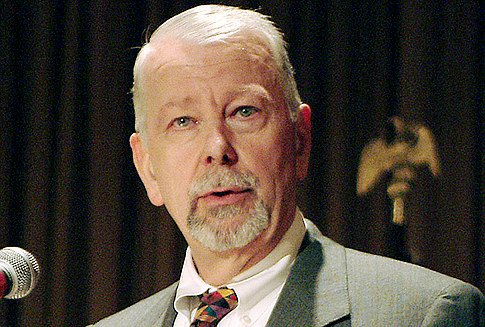 I suppose I shouldn’t be surprised by anything in the Prop 8 trial anymore, but to be honest, I really thought that the attorneys for the proponents were better than this. No, I’m not imputing any skills to Andy Pugno other than self-aggrandizement, but despite their backward ideals, some of the attorneys on the pro-8 team weren’t all that bad. Sure, they were given a pretty bad case and told to make some lemonade out of rotten lemons, but the lemonade was only half as rancid as it could have been.
I suppose I shouldn’t be surprised by anything in the Prop 8 trial anymore, but to be honest, I really thought that the attorneys for the proponents were better than this. No, I’m not imputing any skills to Andy Pugno other than self-aggrandizement, but despite their backward ideals, some of the attorneys on the pro-8 team weren’t all that bad. Sure, they were given a pretty bad case and told to make some lemonade out of rotten lemons, but the lemonade was only half as rancid as it could have been.
I was unable to make it to the courthouse like I had hoped to cover the hearings today, but thanks to both Arisha and Rick at P8TT and the good folks on the AFER twitter feed, I was able to keep pretty good tabs on the argument. In short, the proponents wanted to wipe out the first trial because Judge Walker was in a long-term same-sex relationship and “might want to get married.” They also discussed the question of who controls the video tape from the trial. And as I was reading the information coming in minute by minute, on both the video and the motion to vacate, one idea came to mind:
Hail Mary.
Before the hearing today, if you asked most any attorney of note, bringing up the old “he’s gay!” argument was something of a sign of discomfort with the way they put on the original case. Pugno and friends essentially acknowledged that perhaps they could have done it better.
If you look at it legally, they still have a lot of appellate options remaining. And much of the case boils down to “questions of law” to which appellate courts review de novo, that is they look at them completely fresh. Judge Walker’s determinations are essentially given no deference there. However, Judge Walker also listed a slew of “findings of fact.” These are not reviewed fresh, but are only overturned if they are “clearly erroneous.” (I’ll leave the question about whether those are really findings of fact for another day.)
So, if you take that his findings of fact are really that, then sure, you’d really, really want a new trial. But there are several very important questions of law that much of the case turns upon in Judge Walker’s decision. Those are reviewed fresh, and Team Prop 8 doesn’t seem to like their hand on that one.
So, they brought this motion to vacate, hoping to get a do-over for that rancid lemonade they made last year. Who knows what their rationale was, but it all stunk of desperation.
Judge Ware’s questioning cut right to the heart of the issue. What is a judge really obligated to disclose, and what are they allowed to take upon themselves to determine their own bias (or lack thereof)? Judge Ware brought up a series of hypotheticals that really put the lie to the Prop 8 team’s argument. I’ll let you go back to the live-blogging this morning to catch those, but suffice it to say, Mr. Cooper was not in an enviable position.
Surely the Prop 8 attorneys thought this through enough to figure out that this wasn’t going anywhere. After all, vacating that decision would have had profound impacts on cases going far beyond the issue of LGBT rights. It was, at best, a long shot. But perhaps a long shot with rewards that were worth the risk for them.
In theory, perception shouldn’t really make a difference in a legal proceeding. That is extraneous, and shouldn’t be taken into account by the jurists reviewing the case. And I have confidence in our judiciary that it won’t be. But, I’m pretty sure if you were able to ask the participants in the Scopes Monkey Trial if perception matters, you would get a very different response. In cases of historical import, perception matters, and I can’t imagine that today did anything for those who wish to hold back the arc of history as it wends its way toward justice.
